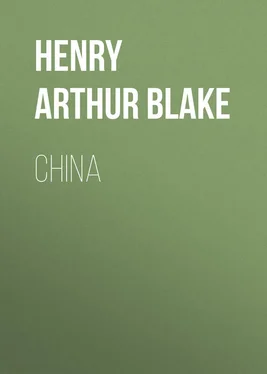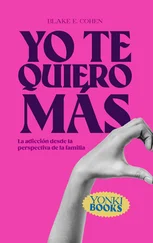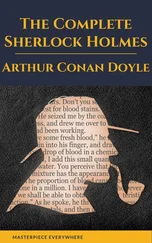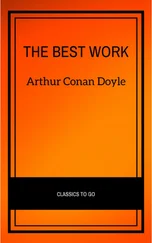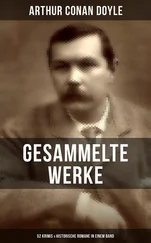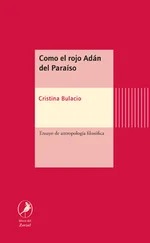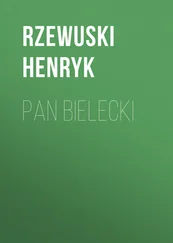Henry Arthur Blake - China
Здесь есть возможность читать онлайн «Henry Arthur Blake - China» — ознакомительный отрывок электронной книги совершенно бесплатно, а после прочтения отрывка купить полную версию. В некоторых случаях можно слушать аудио, скачать через торрент в формате fb2 и присутствует краткое содержание. Жанр: foreign_antique, foreign_prose, Путешествия и география, на английском языке. Описание произведения, (предисловие) а так же отзывы посетителей доступны на портале библиотеки ЛибКат.
- Название:China
- Автор:
- Жанр:
- Год:неизвестен
- ISBN:нет данных
- Рейтинг книги:4 / 5. Голосов: 1
-
Избранное:Добавить в избранное
- Отзывы:
-
Ваша оценка:
- 80
- 1
- 2
- 3
- 4
- 5
China: краткое содержание, описание и аннотация
Предлагаем к чтению аннотацию, описание, краткое содержание или предисловие (зависит от того, что написал сам автор книги «China»). Если вы не нашли необходимую информацию о книге — напишите в комментариях, мы постараемся отыскать её.
China — читать онлайн ознакомительный отрывок
Ниже представлен текст книги, разбитый по страницам. Система сохранения места последней прочитанной страницы, позволяет с удобством читать онлайн бесплатно книгу «China», без необходимости каждый раз заново искать на чём Вы остановились. Поставьте закладку, и сможете в любой момент перейти на страницу, на которой закончили чтение.
Интервал:
Закладка:
The punishments inflicted in Chinese courts are severe, and sometimes very terrible. The ordinary punishment for minor offences is the cangue and the bastinado. The cangue is a three-inch board about three feet square, with a hole in the centre for the neck. When this is padlocked on the neck of the culprit he is placed outside the door of the court, with his offence written upon the cangue, or is sometimes allowed to walk through the town. In this position he cannot feed himself, as his hands cannot reach his head, nor can he lie down or rest in comfort. Sometimes the hands are fastened to the cangue. The punishment is more severe than that of our old parish stocks, but the idea is the same. Were it in the power of a troublesome fly to irritate a Chinaman, which it is not, he might suffer grave discomfort if the insects were active.
The bastinado is a different matter. This is administered by placing the prisoner on his face, his feet being held by one man and his head by another. The blows are inflicted with a large bamboo or with two small ones. The large bamboo looks more formidable, but though the strokes are heavy they break no bones, and do but little injury. The small bamboos are used in a different manner. Taking one in each hand, the operator sits down and strikes the culprit rapidly with alternate strokes, apparently mere taps. These are hardly felt for the first fifty or sixty taps, and the skin is not broken; but after this phase the flesh below the skin becomes regularly broken up, and the agony is very great. The recovery from this severe punishment is slow, as the tissues are destroyed for the time being.
These are, however, the light punishments; torture for the purpose of extracting evidence is still inflicted, and in pursuance of a custom that down to a late period had acquired the force of a law, that no person should be executed except he had confessed his crime, the palpable difficulty of that apparently beneficent rule was surmounted by the administration of torture, until the victim was reduced to such a state of mutilation and despair that he was prepared to state anything that would secure for him relief from his sufferings by a speedy death. It must be acknowledged that the pressure of the torture has now and again secured valuable evidence from unwilling witnesses that may have been capable of independent proof, but as a rule such evidence was utterly untrustworthy.
The following story was told to me by a Chinese gentleman who had personal knowledge of some of the persons concerned.
A son and daughter of two wealthy families were married. At the conclusion of the first evening's ceremonies the bride and bridegroom retired to their apartments, which were separated from the main house. Some time after they had retired, hearing a noise overhead, the bridegroom got up and putting on his red bridal dress he lit a candle and went up to the loft. Here he found a robber, who had entered through a hole in the roof, and who, seeing himself detected, after a short struggle plunged a knife into the bridegroom and killed him. He then assumed the bridegroom's dress, and taking the candle in his hand he boldly went down to the chamber where the bride awaited the return of her husband. As Chinese brides do not see their husbands before marriage, and as she was somewhat agitated, she did not perceive that the robber was not her newly married spouse. He told her that he had found that a robber had entered the house, but had made his escape on his appearance. He then said that as there were robbers the bride had better hand her jewels to him, and he would take them to his father's apartments and place them in the safe. This she did, handing over jewels to the value of several thousand taels. The robber walked out, and he and the jewels disappeared.
Early next morning the father of the bridegroom came to visit his son, and on entering the apartment was told by the bride that she had not seen her husband since he took the jewels to have them deposited in safe keeping. The father on hearing the story went up to the loft, where he found the dead body of his son. He searched about and in one of the courtyards outside he found a strange shoe.
For the wedding a number of the friends of the family had assembled who were, as usual, accommodated in the house. Among them was a young man, a B.A., and most respectably connected. The father taking the strange shoe went round all the guests, who had just arisen. On comparing the shoe he found that it belonged to the young B.A., who was wearing its fellow, the other shoe being that of his murdered son. The father was a cautious man, so instead of taking immediate action he returned to the young widow and questioned her closely. He asked if she could identify the man whom she had mistaken for her husband. She said that she could not. He begged her to think if there was any mark by which identification was possible, and after thinking for a time she answered "Yes," that she now remembered having remarked that he had lost a thumb. The father returned to the guest chamber and asked the B.A. for explanation of his wearing the son's shoe, for which he accounted by the statement that having occasion to go out during the night he had stumbled in crossing one of the courtyards and lost his shoe in the dark, and groping about had found and put on what he thought was his own. Upon examining his hands he was found to be minus a thumb. The father having no further doubt caused him to be forthwith arrested and taken before the prefect. The young man denied all knowledge of the murder, saying that he had a wife and child, was well off, and was a friend of the murdered bridegroom. He was put to the torture and under its pressure he confessed that he was the murderer. The body had been examined and the extent of the wound carefully measured and noted. Asked to say how he had disposed of the knife with which the murder had been committed, and what had become of the jewels, he professed his inability to say, though tortured to the last extremity. He was then beheaded. His uncle, however, and his widow would not believe in his guilt, and they presented to all the superior authorities in turn petitions against the action of the prefect, who ought not to have ordered the execution until corroborative proof of the confession had been secured by the production of the knife and the jewels, but the officials refused to listen to them. At length they appealed to the viceroy, who, seeing their persistence, concluded that there must be something in a belief that braved the gravest punishment by petitioning against a mandarin of prefect rank. He sent for the father and widow of the murdered man, who repeated the story, which seemed almost conclusive evidence of the young man's guilt. He asked the widow if she remembered from which hand the thumb was missing of the robber to whom she had given the jewels. She replied, "Yes, perfectly. It was the right." He then sent for the petitioning widow and asked her from which hand her husband had lost a thumb. She answered, "The left." Then recalling the father of the murdered man he bade him try to recollect if he had ever known any other man wanting a thumb. He said that there was such a man, a servant of his whom two years before he had dismissed for misconduct. Asked if he had noticed the dismissed man during the time of the wedding the answer was that he had, but he had not seen him since.
The viceroy then had inquiry made, and the man was traced to another province, where he was living in affluence, with a good shop, etc. He was arrested, and under torture confessed the crime and told where he had concealed the knife and disposed of the jewels. The knife had a wide blade that coincided with the width of the wound, and a portion of the jewels were recovered, some having been pawned, some sold. The prefect was degraded and punished for culpable want of due care in having executed the man without securing complete proof by the production of the knife and the jewels.
Читать дальшеИнтервал:
Закладка:
Похожие книги на «China»
Представляем Вашему вниманию похожие книги на «China» списком для выбора. Мы отобрали схожую по названию и смыслу литературу в надежде предоставить читателям больше вариантов отыскать новые, интересные, ещё непрочитанные произведения.
Обсуждение, отзывы о книге «China» и просто собственные мнения читателей. Оставьте ваши комментарии, напишите, что Вы думаете о произведении, его смысле или главных героях. Укажите что конкретно понравилось, а что нет, и почему Вы так считаете.
